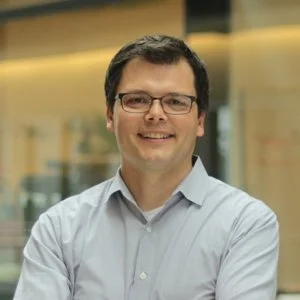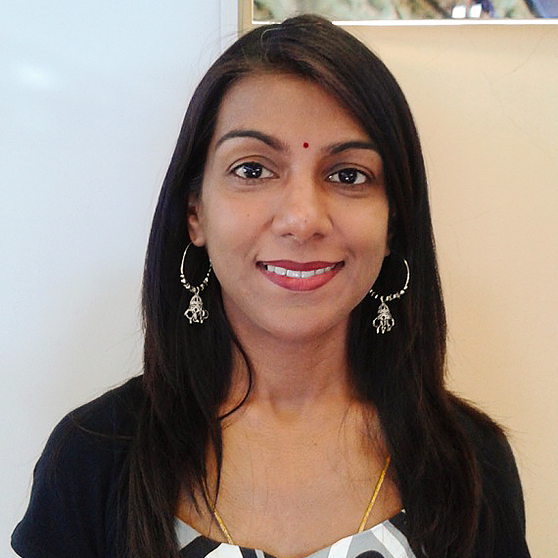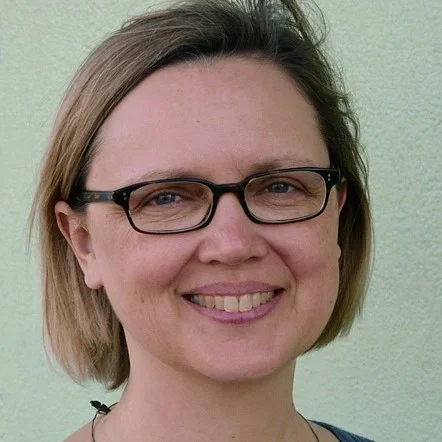OpenPlant Forum 2017 Programme
Monday 24 July 2017
13:00 - 17:00 OpenPlant Fund Pitches
Interdisciplinary teams led by early career researchers from Cambridge and Norwich pitch their ideas for £5000 OpenPlant Fund projects to a panel of judges from academia, industry and NGOs. In this round, projects should generate a tangible outcome of relevance to synthetic biology or cell-free synthetic biology and all outcomes must be shared openly with the community.
13:00 - 14:00 LUNCH
14:00 Introduction
14:10 A cell-free sensor platform for the quantification of arsenic concentrations in drinking water
14:20 Cell-free diagnostics for the surveillance of livestock viruses
14:30 Development of Manufacturing Capability for Rare Sugar Nucleotides
14:40 Engineering of Chlamydomonas reinhardtii to produce betalain pigments and the use of riboswitches to direct metabolic flux
14:50 CGSENS: Visualization of CG methylation using a fluorescence protein biosensor
15:00 Design of synthetic plant and mammalian gene regulatory networks using nonparametric Bayesian approaches
15:10 GardenSeq Chasing the invisible diversity of microbial life forms in vegetable garden beds with a portable DNA-sequencer
15:20 Plug and play synthetic biology education resource
15:30 Coffee
16:00 Single cell pollen meiosis screening in wheat
16:10 Harvesting the genetic value of interspecific wheat introgressions
16:20 Identifying nutrient-status dependent elements regulating the wheat transcriptional response to neighbours
16:30 Bench-top Controlled Environment Growth Chamber for Speed-Breeding and Crop Transformation
16:40 Closing Remarks (Judging panel)
17:00 - 18:30 Drinks Reception and Poster/Demo Session
An opportunity to peruse previous OpenPlant Fund projects and ongoing research with drinks and networking.
18:30 - 20:00 Industry Forum: Building a sustainable global bioeconomy
Talks from a range of synthetic biology companies about their journeys to setting up impactful ventures and the opportunities and challenges they foresee in establishing a sustainable bioeconomy with emerging fast and frugal biotechnologies. Topics may include the role that synthetic biology and industry could play in furthering the sustainable development goals, additional challenges to achieving impact in emerging and resource-constrained markets and the role of open IP as a commercial strategy. Speakers include:
- Deep Science Ventures
- Orr Yarkoni and Jim Ajioka, Colorifix
- Miha Pipan, Entomics
Tuesday 25 July 2017
08:30 - 09:00 Arrival and coffee
09:00 - 09:15 Welcome
Jim Haseloff, University of Cambridge
09:15 - 10:45 Keynote Talks: Cell-free expression systems for synthetic biology
Development of Versatile and Cost-effective Cell-free Protein Synthesis Technology
Jim Swartz, Stanford
Rapid, Low-cost Tools for Human Health: Using Cell-free Synthetic Biology for Diagnostics and the Portable Manufacture of Therapeutics
Keith Pardee, University of Toronto
Establishing microfluidic cell-free systems for the rapid characterization of genetic networks
Sebastian Maerkl, EPFL
10:45 - 11:15 Coffee
11:15 - 12:15 Programming cell-free systems and design for diagnostics
Prototyping of cell-free protein synthesis in non-model bacterial systems
Simon Moore, Imperial College
Designing Diagnostics
James King and Tempest van Schaik, Science Practice
Poster Lightning Talks
12:15 - 14:15 Lunch and poster session
14:15 - 15:30 Tools for fast and frugal bioengineering
Loop Assembly
Bernardo Pollak, University of Cambridge
Improving the Plant Genome Engineering Toolbox
Nicola Patron, Earlham Institute
Developing an open access expression system to liberate transient expression of proteins in plants
Hadrien Peyret, John Innes Centre
Poster Lightning Talks
15:30 - 16:00 Coffee
16:00 - 18:00 Fast, frugal and open biotechnology for development
Open source technologies for science and education in Latin America
Fernan Federici, Pontificia Universidad Católica de Chile
The agricultural Bio-economy in South Africa and potential for applying new genetic engineering technologies
Maneshree Jugmohan-Naidu, South African National Department of Science and Technology (DST)
Why IP won't deliver technology justice
Simon Trace, Oxford Policy Management
Cultivating innovative solutions to global challenges in the Cambridge ecosystem: challenges and opportunities
Lara Allen, Centre for Global Equality
Taking big ideas to a resource poor country - Zimbabwe
Fiona Robertson, University of Zimbabwe
A panel discussion will follow the talks.
18:00 - 19:30 Drinks reception
19:30 - 21:00 Conference Dinner
21:00 - 22:00 Synthetic biology curricula of the future:
fostering creativity and interdisciplinarity
Jenni Rant, SAW Trust
Jake Wintermute, CRI Paris
Colette Matthewman, John Innes Centre
Karen Ingram, Independent Artist
Helene Steiner, Microsoft Research
Biodesign Challenge Team, Royal College of Art
22:00 - 23:30 Bar
Wednesday 26 July 2017
08:30 - 09:00 ARRIVAL AND COFFEE
09:00 - 09:30 keynote talk: Post-transcriptional regulation in Marchantia
Mario Arteaga, Universidad Veracruzana
09:30 - 10:30 Advances in tools for algal synthetic biology
A synthetic biology approach to harness the regulatory potential of miRNAs in the green alga Chlamydomonas reinhardtii
Francisco Navarro, Plant Sciences, University of Cambridge
Using Synthetic Biology To Engineer Medicinal Algae
Payam Mehrshahi, Plant Sciences, University of Cambridge
Turning sugar to gold: uncovering enzymatic tools in microalga for β-1,3-glucan synthesis
Sue Kuhaudomlarp, John Innes Centre
10:30 - 11:00 COFFEE
11:00 - 12:30 Constructing a shareable toolkit for rapid plant model systems
Open tools for liverwort analysis and engineering
Susana Sauret-Gueto, University of Cambridge
A new piece to an old puzzle: investigating plant-microbe interactions in early land plants
Philip Carella, University of Cambridge
Reengineering the Marchantia Polymorpha chloroplast genome, one base at a time
Orr Yarkoni, University of Cambridge
12:30 - 13:45 LUNCH AND POSTER SESSION
13:45 - 14:45 Metabolic engineering for novel chemicals and therapeutics
CRISPR/Cas9 Mediated Gene Silencing for L-DOPA production in Beetroot
Noam Chayut, John Innes Centre
Catnip: the molecular and evolutionary origin of nepetalactone biosynthesis
Benjamin Lichman, John Innes Centre
Utilising transient expression towards the preparative production of triterpenes: A tool for medicinal chemistry?
Michael Stephenson, John Innes Centre
14:45 - 15:15 Reflections from participants
Creating a cell-free lab for students
Clarmyra Hayes, University of Warwick
Science and Plants for Schools
Daniel Jenkins, Science and Plants for Schools
15:15 - 15:30 Closing remarks
Anne Osbourn, John Innes Centre
15:00 - 16:00 COFFEE and networking
16:00 conference closes
OpenPlant Punting and BBQ (organised by OpenPlant Postdocs)
16:45 - 18:00 Punting
Leaving from Scudamores, Mill Lane
Registration required for punting and BBQ
18:00 - 20:00 BBQ
Organised by the OpenPlant Postdocs, at the Sainsbury Laboratory near the Botanic Gardens. For those who don't wish to punt, the Botanic Gardens are open to visitors until 18:00.
Registration required for punting and BBQ
Thursday 27 July 2017
Working group on curriculum development and teaching resources for fast and frugal biotechnology.
Draft topics for discussion:
- Description of existing efforts in curriculum development, BioBuilder, NCBE, SAPS, SAW Trust.
- Modular systems for documentation
- Production of cell-free extract and distribution of freeze-dried materials
- Low-cost instrumentation
- Possible cell-free projects - exemplars
- Integration into curricula
- Mechanisms for sharing materials
Invitation only. If interested to join, please email jcm80@cam.ac.uk
Connecting via Social Media
The OpenPlant Twitter account is @_OpenPlant and we will be tweeting on #OpenPlantForum. Photos of the event will be made available on Flickr.
Glisser
We are using Glisser during OpenPlant Forum 2017 - an event technology company designed to make presentations more interactive and useful. Slides will be shared directly to your phones or devices so you can download all presentations, and we’ll also be using Glisser to let you text in questions, and vote in polls throughout the event.
There’s no need to download anything.
Just put this url: http://glsr.it/openplant2017 Into your internet browser on your device or phone (chrome or safari are fine).
To vote in polls, select your answer and press send. To ask a question, just type your question into the text box at the bottom of your screen and press send. Glisser will also let you send the slides and any notes you've made on them to your email address after the presentation, so there’s no need to take any photos of slides you like the look of. We hope you enjoy using it!
Confirmed Speakers
Logistical Information
Venue
Address
Howard Theatre
Downing College
Regent Street
Cambridge
CB2 1DQ
Porters' Lodge Tel: 01223 334800
Fax: 01223 363852
Download:
Networking and Social Opportunities
Gala Dinner - Tue 25 July
The OpenPlant Forum Gala Dinner will be held at 19:30 in the Main Hall at Downing College. Please note that only those who have registered can attend and only vegetarians will receive the vegetarian option. Tickets for people with special dietary requirements must be collected from the Forum Reception desk.
If you are not a speaker or funded by OpenPlant, please pay the £25 fee for the conference dinner by cash or cheque at the Forum Reception desk by 16:00 on Tue 25 July.
Starter
Confit of Duck and Chicken with Pancetta Apricot, Char Grilled Sour Dough
(V) Celeriac Velouté, Black Truffle Focaccia
Main
Fillet of Scottish Salmon Fennel Purée, Crushed Potato, Braised Baby Fennel, Red Amaranth Cress, Lemon Oil
(V) Walnut Gnocchi Pepper ragout, salsify and mushroom soil
Dessert
Trio of Desserts: Hazelnut and Chocolate Macaron, Madagascar Crème Brûlée, Lime Meringue Pie
Wine will be served at the table and coffee and chocolates will follow in the Grace Howard Room from 21:00. A cash bar will be available until 23:30.
Punting and BBQ - Wed 26 July
The OpenPlant postdocs have arranged a punting trip (16:45) and BBQ (18:00 at the Sainsbury Laboratory in the Botanic Gardens. A taxi/minibus back to Norwich will be provided at 20:00.
Please register here to attend by 21 July. Places are limited.
For those who do not wish to punt, the Botanic Gardens themselves are open until 18:00.
The OpenPlant Hub
A ten-person meeting room is available throughout the conference to be booked in 30 min slots for informal or formal meetings that gather small groups around a particular topic. Sign up for a slot at the Forum Registration Desk.
Conference Facilities
Accommodation
For those being accommodated by OpenPlant, you will be staying in Downing College, Regent Street, Cambridge, CB2 1DQ. Please check-in via the Porters Lodge. Accommodation includes breakfast and wifi is available via eduroam or guest logins obtained from the Porter’s Lodge.
Payment: Nothing is payable on check-out.
Posters and leaflets/literature
Poster boards, tables and velcro pads will be available for those who have registered to bring a poster or would like to put out leaflets/stickers.
Wifi
UniCam and eduroam networks are available onsite, temporary logins will be issued to visitors on check-in or via the Forum Registration Desk.
Social Media
The OpenPlant Twitter account is @_OpenPlant and we will be tweeting on #OpenPlantForum. The conference will also be on Glisser at http://glsr.it/openplant2017 - view presentations, ask and vote on questions and more.
Power
Access to power sockets will be limited during sessions so we advise that you bring your electronic equipment fully charged where possible and we will try to provide increased access during breaks and lunch.
Parking
Parking is not available onsite without prior arrangement and is very limited in the City Centre.
Contact Us
Dr Jenny Molloy
Department of Plant Sciences
University of Cambridge
Downing Street
Cambridge
CB2 3EA
Email: coordinator@synbio.cam.ac.uk
Tel: +44 (0)1223 766546 (ext 66546)
Conference Urgent Number: +44 7787 445 330
The Downing College Events Team and Porters Lodge can also help with urgent queries or emergencies.
Getting to Cambridge
By Rail
There are direct services to Cambridge Station from London Kings Cross and London Liverpool Street. When travelling from the north or west, it is normally necessary to change at Peterborough and/or Ely.
There are frequent bus services from Cambridge Railway Station to the city centre (Drummer Street Bus Station, which is a 5 min walk from Downing College). Taxis are also available at the station and it's around 20 minutes to the venue on foot .
By Coach
National Express long distance coach services terminate at Parkside, on the Northern side of Parkers Piece, as does the Stagecoach X5 service from Oxford via Milton Keynes. Christ's is only a few minutes walk from the terminal.
By Air
There are direct coach services from the four London airports: Heathrow, Gatwick, Stansted, and Luton. There is also a direct train service from Stansted (which is the nearest of the four London airports).
By Road
Parking in Cambridge city centre car parks can be difficult and is also expensive. There are several Park and Ride sites located outside the city centre with bus connections to Drummer Street Bus Station, a few minutes walk from both Christ’s College and the Department of Plant Sciences. It is recommended that visitors use these facilities whenever possible. Details of Park and Ride sites, city centre car parks and parking charges can be found on the City Council's website
Download:








































